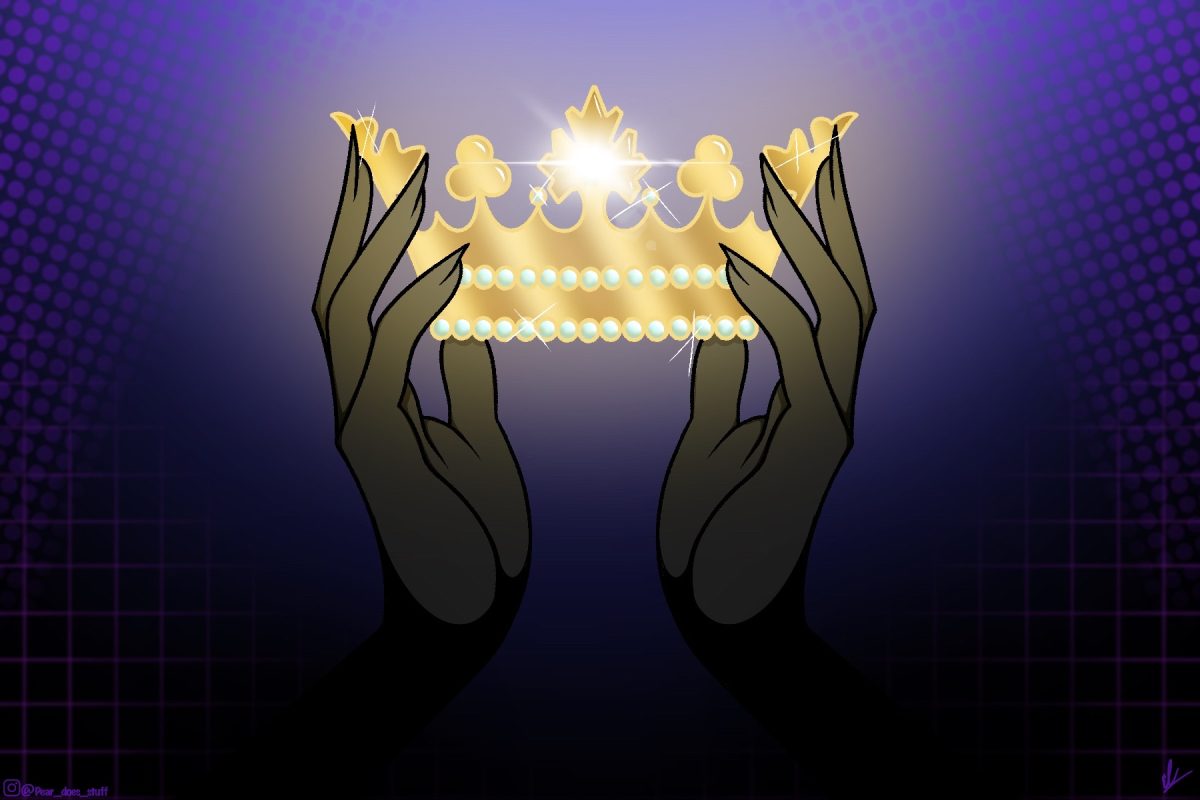One search for the term “girl boss” online yields a plethora of cheesy quotes, decked out in cursive and bright pink, encouraging women to work hard and achieve their goals. While at first glance this may seem like the perfect female empowerment catch phrase, a deeper look reveals the contradictory messages that have grown out of it.
Many have criticized the term for promoting capitalist feminism, in which the rise of some women comes at the expense of others through ruthless financial competition. Under this model, female empowerment becomes synonymous with making an excessive amount of money. This, critics claim, further fuels existing inequalities in the status quo. Instead of reshaping the financial system and raising up all women, the girl boss attitude causes women to continue following the capitalist pyramid in order to succeed and earn respect from society while pushing other women down in the process. Others denounce the wording of the term for invalidating female authority by categorizing female leadership as something unusual. Its rise and fall has opened up a discussion on the true definition of feminism and whether the idea of girl bosses actually helps the movement toward gender equality.
The term “girl boss” did not become mainstream until 2014, when clothing company Nasty Gal founder Sophie Amoruso used it as the title for her memoir, “#Girlboss.” Using the concept as a metaphor for her own success story, Amoruso argued that rather than dismantling the male-dominant power dynamic in the workplace, women should just take the power for themselves. Instead of restructuring the systemic bias, she advocated for women to climb the ranks to claim authority in place of men. She described such action as a “pursuit for power” in the “quest for equality” for women that would also empower women below her in the workforce. The term quickly took off, and female icons around the world found themselves being hailed as girl bosses. At its peak, the term was plastered on everything, from coffee mugs and phone cases to billboards and advertisements.
Initially considered empowering, many women used the label to describe themselves as it became associated with being a confident, capable woman who prioritized her own ambitions over working for others and settling in life. However, the term was quickly twisted to become synonymous with being ruthless and cutthroat. Eventually, some women began pushing others down to claim the title of “girl boss.” This created the same effect already present in the patriarchy, in which stronger groups cut down and broke apart disadvantaged ones.
“I think that anytime a dominant group feels threatened by smaller groups, there’s a tradition of that dominant group trying to divide the smaller group,” Spanish teacher Kim Revilla said. “If they’re divided, they’re not as strong. They don’t have enough power. That’s been the case with so many different groups, but has been used especially against women.”
Then, in 2017, Netflix released the show “Girlboss,” which was loosely based on Amoruso’s memoir and portrayed only the cold side of powerful females. While it was originally supposed to establish a new strong female character archetype in entertainment, the show became a prime example of the problems behind labeling individuals as girl bosses. In the show, the main character twists her narrative to make herself appear more courageous and capable to the other characters. Her character was also deliberately written to be somewhat unlikeable, with anticipatory acknowledgement of being rude and selfish. But rather than characterizing this behavior as harmful, the show portrays these traits as being necessary for success. As a result, the show adds to the caricature of powerful women needing to be cold and harsh in order to succeed — a false depiction. And by being the label for such powerful women, the term “girl boss” then also embodies such ideas.
Additionally, many who are hailed as girl bosses, including Amoruso herself, have been accused of allowing racial discrimination, permitting abusive management and engaging in questionable labor practices. Such actions prevent the advancement of equality in the workplace, and a “girl boss” who attains power by cruelly knocking other people down does not bring about positive change. Society is under the impression that any female leadership is progressive, but that is not necessarily the case.
“When women center their worldview around their own office hustle, it just re-creates the power structures built by men, but with a woman conveniently on top,” said Amanda Mull in an article for the Atlantic.
Others criticize the wording of the term itself. They feel that by adding “girl” in front of “boss,” the image of a strong female figure is infantilized into that of a childish persona who is not serious about work. Having to refer to a female boss specifically by her gender also implies that successful women are an anomaly in a world where male leadership is accepted as the norm. Critics note that there is no such term as “boy boss” — male leaders are simply “bosses.”
Referring to someone as a girl boss puts them into a separate category. Why can’t girls also just be called a good leader? It’s like saying you’re only good enough to be a girl boss, but not an actual boss.
— Ruhi Aggarwal, Junior
“Referring to someone as a girl boss puts them into a separate category,” said Junior Ruhi Aggarwal. “Why can’t girls also just be called a good leader? It’s like saying you’re only good enough to be a girl boss, but not an actual boss.”
This trend of well intended empowerment methods that fall short is not just limited to the term, though. The ideology that women must be placed in a separate arena in order to succeed takes shape in many forms. For example, some classes and clubs designate “girls only” activities, which are designed to create a more welcoming environment for girls to excel in without the competition of boys. Although created with the intent to empower, such attempts often end up making girls feel less than by reinforcing the idea that they can only do well when they are sheltered from the “stronger” males. The term girl boss encapsulates these ideas and subconsciously implies that if girls were to compete with boys, they would come out on the losing end.
Many view the term “girl boss”, and the mainstream media popularization of it, as having undermined the feminist movement by pushing women toward performative productivity and encouraging them to engage in callous tactics to gain advantage. They feel that this has resulted in the idea that feminism is an individualistic pursuit under capitalism rather than a collective movement toward the liberation of all women. Additionally, those who are often seen as girl bosses are controversial figures who have been accused of propagating racism and class elitism. The term has also been interpreted to play into the notion that girls need to follow different paths to succeed because they are unable to compete with boys. Instead, it is the building of inclusivitivity for all genders, races, and social classes into the economic framework that may best further the feminist cause.
“It should be about showing girls that it is possible and that you can make it up there without being an awful person,” said Aggarwal. “And instead of creating separate categories for girls, we should focus on educating people on how to create an inclusive environment where all genders can succeed — that is much more empowering.”
This story was originally published on The Epic on March 17, 2021.




























![IN THE SPOTLIGHT: Junior Zalie Mann performs “I Love to Cry at Weddings,” an ensemble piece from the fall musical Sweet Charity, to prospective students during the Fine Arts Showcase on Wednesday, Nov. 8. The showcase is a compilation of performances and demonstrations from each fine arts strand offered at McCallum. This show is put on so that prospective students can see if they are interested in joining an academy or major.
Sweet Charity originally ran the weekends of Sept. 28 and Oct. 8, but made a comeback for the Fine Arts Showcase.
“[Being at the front in the spotlight] is my favorite part of the whole dance, so I was super happy to be on stage performing and smiling at the audience,” Mann said.
Mann performed in both the musical theatre performance and dance excerpt “Ethereal,” a contemporary piece choreographed by the new dance director Terrance Carson, in the showcase. With also being a dance ambassador, Mann got to talk about what MAC dance is, her experience and answer any questions the aspiring arts majors and their parents may have.
Caption by Maya Tackett.](https://bestofsno.com/wp-content/uploads/2024/02/53321803427_47cd17fe70_o-1-1200x800.jpg)
![SPREADING THE JOY: Sophomore Chim Becker poses with sophomores Cozbi Sims and Lou Davidson while manning a table at the Hispanic Heritage treat day during lunch of Sept 28. Becker is a part of the students of color alliance, who put together the activity to raise money for their club.
“It [the stand] was really fun because McCallum has a lot of latino kids,” Becker said. “And I think it was nice that I could share the stuff that I usually just have at home with people who have never tried it before.”
Becker recognizes the importance of celebrating Hispanic heritage at Mac.
“I think its important to celebrate,” Becker said. “Because our culture is awesome and super cool, and everybody should be able to learn about other cultures of the world.”
Caption by JoJo Barnard.](https://bestofsno.com/wp-content/uploads/2024/01/53221601352_4127a81c41_o-1200x675.jpg)






